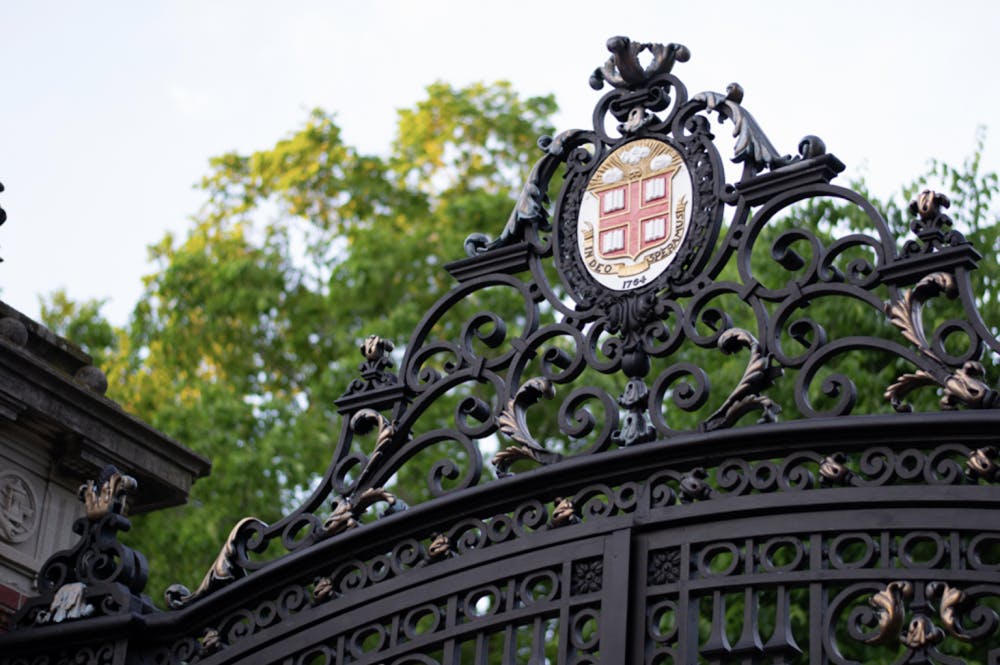The broader undergraduate population could receive their first dose of the COVID-19 vaccine as early as the end of this semester, supplies permitting, Associate Vice President for Campus Life and Executive Director of Health and Wellness Vanessa Britto MMSc’96 speculates.
As part of Phase 1 of the Rhode Island Department of Health’s vaccination plan, staff at both University Health Services and Department of Public Safety have already received at least the first dose of the vaccine, which requires two doses spaced out by about three weeks. According to Britto, patient-facing staff at Health Services “have virtually all been vaccinated,” totaling approximately 60 to 70 staff members.
Patient-facing students from the Warren Alpert School of Medicine, as well as members of Brown Emergency Medical Services, have also received the vaccine, marking the first group of students that will become immunized to COVID-19.
Ryan Conard ’23, a BEMS recruit, felt “incredibly lucky and privileged” when he found out he could get the vaccine, especially since he expected that he would be far down the line to get vaccinated as a healthy young adult. Conard said he felt “very excited” as he went to get his first shot of the Moderna vaccine and only felt slight pain in his arm a few days after receiving the dose.
Receiving the vaccine definitely “would relieve some pressure when working in the field or delivering food to those who have COVID,” Conard said. Still, even after taking his second dose in early February, Conard said that being immunized won’t change his adherence to safety guidelines, and he will continue to wear a mask and social distance from others.
Conard is part of a group of around 50 student staffers for BEMS who were able to get the vaccine, according to Britto.
Next in line to receive the vaccine in the following weeks are University Athletic trainers, Counseling and Psychological Services clinicians as well as accessibility specialists from Student and Employee Accessibility Services.
But Britto projects that it will be awhile until other undergraduate and graduate students may receive the vaccine, speculating that this could happen in the latter half of the spring semester at the earliest. Nonetheless, the timeline of vaccine distribution for remaining community members is dependent on supply, making it difficult to predict when or if students will receive the vaccine this semester.
The exact timeline “is a question that looms large around us because it also has implications for the general population,” Britto said. “I don’t have a crystal ball. I can’t say for sure.”
Once vaccine distribution is expanded to include the larger student population, the University will likely develop “concentric circles” to determine who could get vaccinated first, Britto said. She added that the University would most likely start at students with preexisting health conditions or who are immunocompromised, then move to students who live in more “congregate” housing.
Any distribution efforts would also need to follow the guidance of RIDOH through their three phased approach to vaccination, she said, adding that the University could not “overstep” those pre-existing guidelines in any capacity.
“The state sets the priority, the state has the vaccine and the state releases it to different distribution sites,” said Executive Vice President for Planning and Policy Russell Carey ’91 MA’06, limiting the University’s control over distribution timeline.
Brown and other nearby universities are working closely with the state to coordinate vaccination efforts for members of their communities as they become eligible, Britto explained. When a certain group, such as patient-facing health respondents, becomes eligible for vaccination, RIDOH contacts the different higher education institutions to identify which members of the community fit into that category.
The vaccination efforts, to Britto, have gone as smoothly as possible given the current limited supplies, not only locally but also throughout the country. “All states have been experiencing some challenges and I don’t think Rhode Island is any different from any state,” she said.
The state is using the two vaccines developed by Pfizer and Moderna — both of which have been granted Emergency Use Authorization by the Food and Drug Administration.
The University has created a COVID-19 vaccine working group that will advise administrators on the logistics surrounding the vaccine as well as oversee education efforts, according to a Jan. 25 Today@Brown announcement from Britto and Carey. The working group, co-chaired by Carey and Michele Cyr, professor of medicine and the division of biology and medicine’s senior associate dean for academic affairs, has yet to determine whether the vaccine will be mandatory for students and employees. If the University decides to make the vaccine mandatory, Britto and Carey wrote that medical and religious exceptions would be allowed, “along with considerations for reasonable accommodations.”
“We would love to be able to provide the vaccine here on the campus. We are prepared to easily set up a structure and system to do that and are poised to make that happen if the state would allow it,” Britto said. “We’re flexible, we’re ready in either circumstance.”

ADVERTISEMENT




